- Overview
- Symptoms
- Causes & Risks
- Tests & Diagnosis
- Treatment
- Living With
- Complications
- Support & Resources
- Appointment Prep
- View Full Guide
Best and Worst Drinks if You Have Crohn's


What You Drink Can Affect Your Crohn's
The one sure thing about Crohn's disease is that it affects everyone differently. A lot of advice about living with this inflammatory bowel disease (IBD) focuses on foods, but what you drink matters, too. Some beverages, like coffee, soda, and milk, can trigger symptoms or worsen a flare. Others, like water, can help or be neutral. Unsure of what affects you? Journaling will help you identify patterns, so you'll know what to reach for and when.
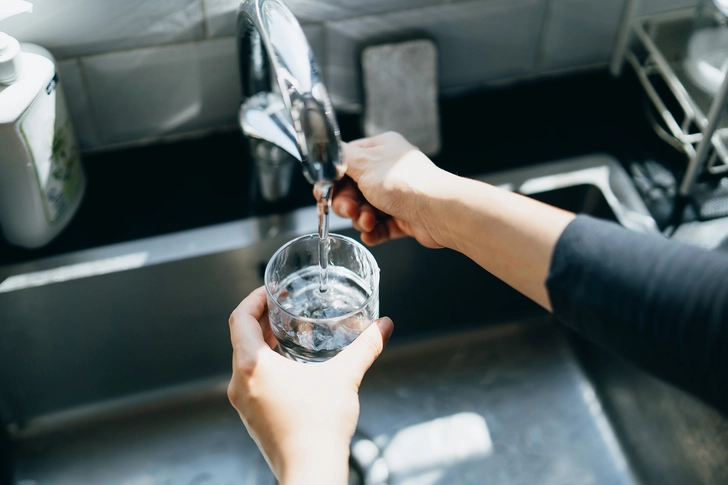
Better: Water
Staying hydrated is a good everyday plan. Water is best. A helpful rule of thumb is to drink the number of ounces equal to half of your weight. If you weigh 150 pounds, that would be 75 ounces. This could mean increasing the amount of water you've been drinking daily. It's especially important to get enough water during a flare, when you're losing fluids through diarrhea and run the risk of becoming dehydrated.
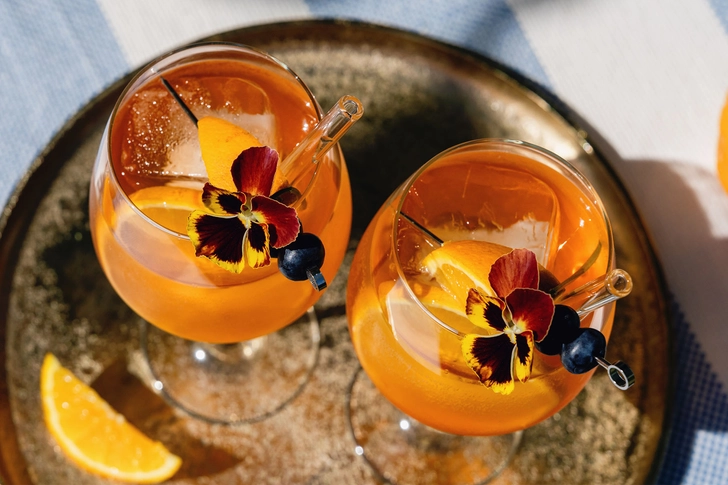
Not So Great: Alcohol
Alcohol upsets the balance of bacteria in the digestive tract. It can worsen the inflammation seen with Crohn's disease both during and after a flare. Symptoms vary from person to person and sometimes by the drink. Some people are bothered by beer but not red wine. Mild alcohol consumption may be fine, but sugary cocktails might not be. They often cause more symptoms and flare-ups than plain alcohol. Heavy drinking is linked to worsening Crohn's.
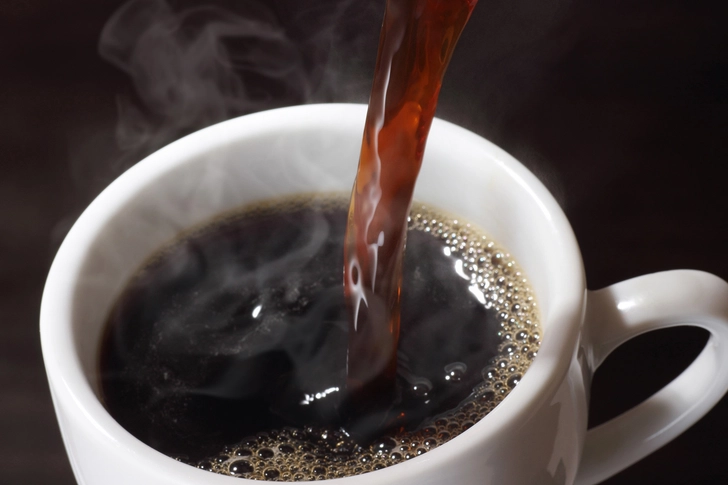
Some Potential: Coffee
During a flare, you'll want to stay away from coffee because the caffeine acts as a poop stimulant. When the flare is gone, you might be able to enjoy a few cups of joe again. Research found that while five cups of coffee a day can worsen Crohn's, fewer than four cups might actually help: Fewer than four cups of coffee may improve the quality of bacteria in your GI tract and its motility or muscle contractions.
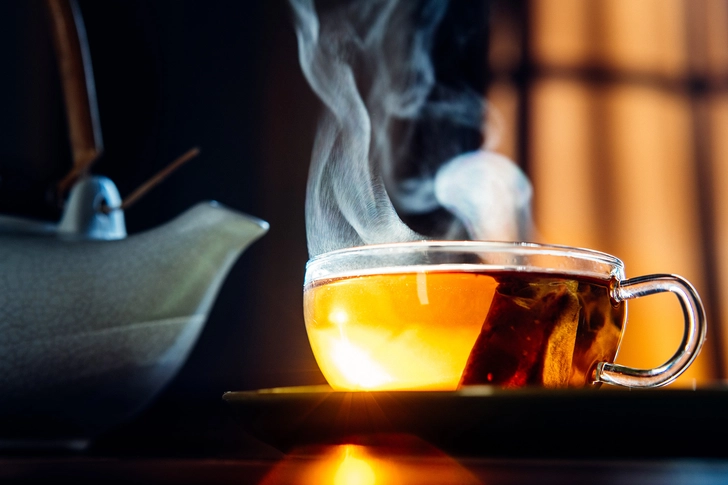
Better: Herbal Tea
Caffeine-free herbal teas can be soothing to sip. They also make a good hot beverage replacement for coffee during a flare. Some herbals may offer some symptom relief. Teas made from ginger, peppermint, and chamomile have anti-inflammatory properties and are known to ease the symptoms of many digestive disorders, including cramps. Before trying any herbal tea, confirm with your doctor that it won't interfere with any of your medications or other conditions.
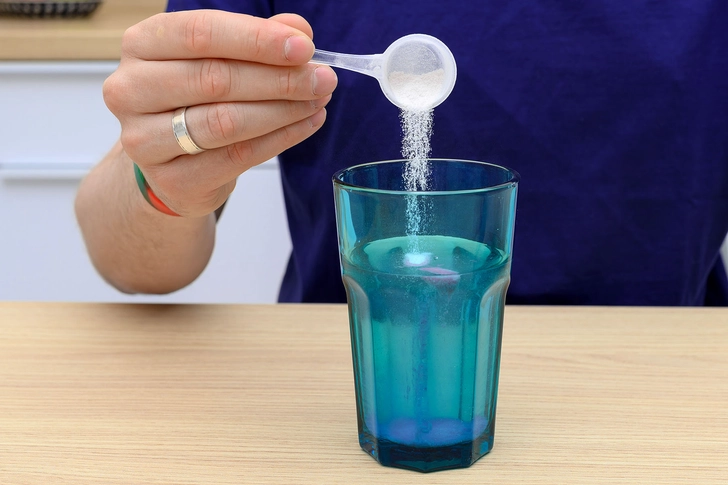
Better: Electrolyte Beverages
When you're dehydrated, especially from diarrhea, you've lost electrolytes, like sodium, potassium, and chloride, as well as water. Replenish with an oral rehydration solution – fluids that include these electrolytes. Pedialyte and Ceralyte are designed for illness recovery and may be better than sports drinks like Gatorade and Powerade, which have more sugar and are made for athletes.
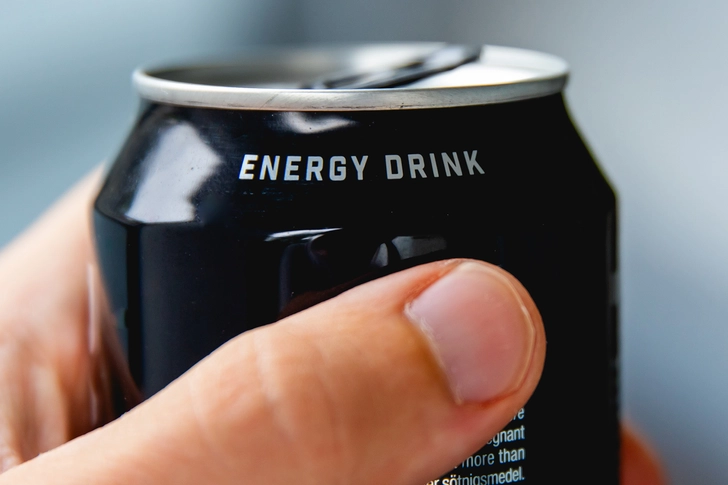
Not So Great: Energy Drinks
Crohn's disease often can leave you feeling fatigued, but energy drinks aren't the answer. A single serving packs a double whammy: a wallop of caffeine (at least twice the amount in a cup of coffee) and a wallop of sugar, often exceeding an entire day's sugar recommendation. The no-calorie versions might not be any better since the sugar is replaced with artificial sweeteners that can cause bloating, gas, and diarrhea.
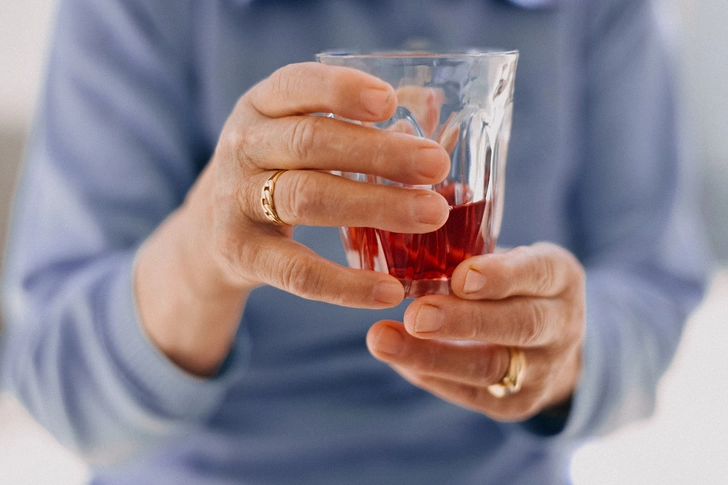
Not So Great: High-Acid Fruit Juice
You might worry about the effects of high-acid juices on tooth erosion, but they can make a Crohn's flare worse, too. Citrus juices and cranberry juices are at the top of the high-acid list. They also contain a lot of fructose – whether from the natural sugars in orange juice or the added sugars found in cranberry juice and its combos. This double shot of sugar and acidity can worsen a flare.
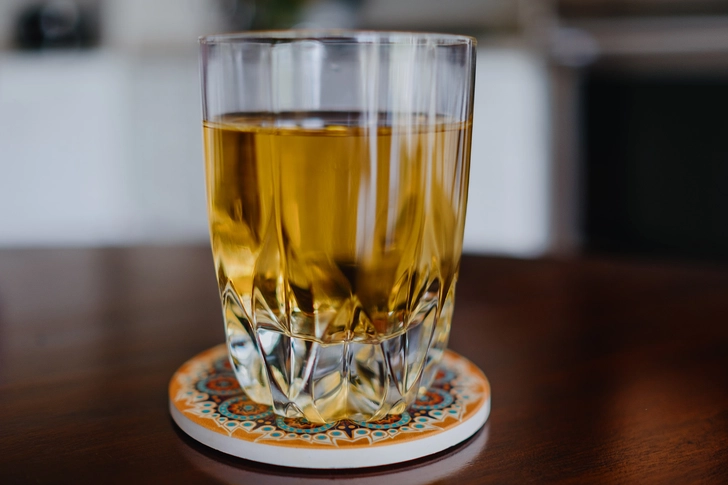
Better: Diluted Fruit Juice
While you'll want to avoid fruit juices during a flare, you might find that diluted fruit juice is one of the best first things to have after it passes. By diluting 100% juice with water, you can still enjoy it and get the juice's nutrients without uncomfortable side effects. Experiment with proportions to find how much water to add without losing the fruit flavor. Try half apple juice and half water, or a 3-to-1 water-to-juice ratio with a super sweet fruit like grape juice.
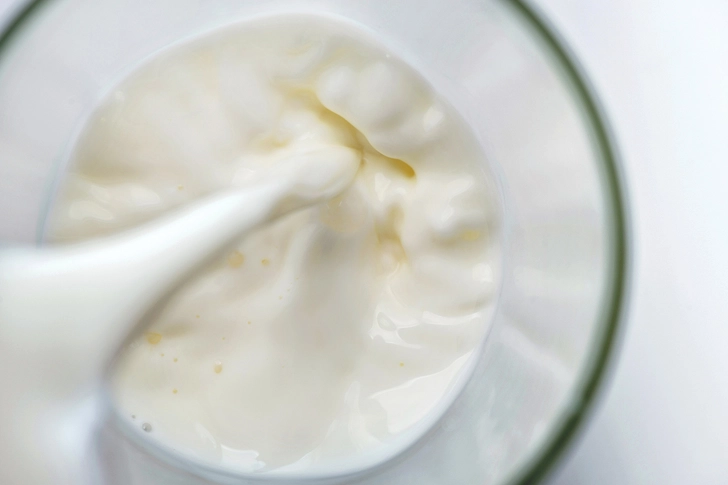
With Caution: Full-Fat Dairy Milk
Before you cut out all dairy, ask your doctor to test you for lactose intolerance. It often rides along with Crohn's, but not always. It's a common belief that dairy worsens Crohn's, but a sweeping research analysis found no clear evidence of this. And skipping milk means losing out on needed protein, calcium, and vitamins. If the fat in whole milk is what's causing symptoms like diarrhea and bloating, try skim, 1%, or 2% milk.
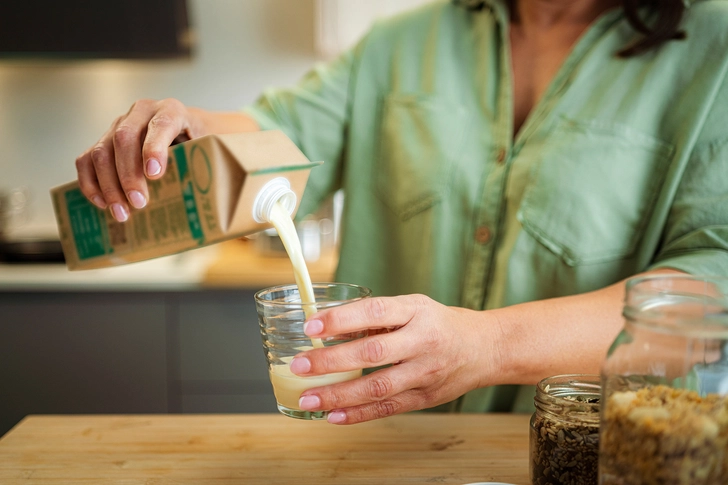
Better: Lactose-Free and Plant-Based Milks
You can get milk's benefits with lactose-free milk or by taking lactose pills when you have dairy. Other alternatives are plant milks, but always read labels because they can fall short on nutrients. Fortified pea milk and soymilk have more protein than almond, cashew, coconut, and rice milks. Also, keep in mind that these drinks are often highly processed with added emulsifiers and thickeners like carrageenan and polysorbate-80, which can make Crohn's worse.
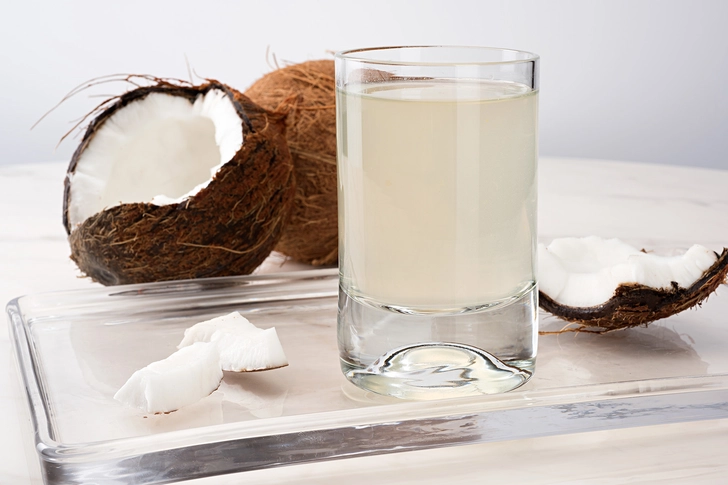
Better: Coconut Water
Thanks to its anti-inflammatory compounds, like flavonoids and phenolic acids, and nutrients, like vitamin C, coconut water can be more than a tasty beverage. A natural source of electrolytes such as potassium, magnesium, and sodium, sip it to stay hydrated or to rehydrate during a flare. It even can improve your gut microbiome.
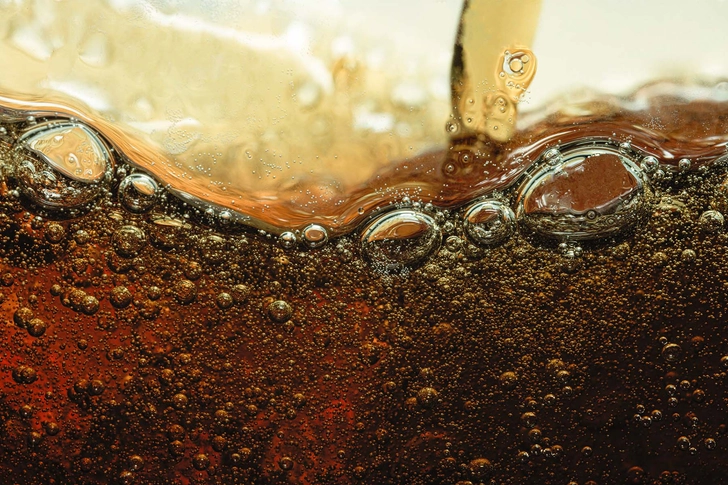
Not So Great: Soda (Yes, Even Diet Soda)
Soda can hit you from all angles. The carbonation, refined sugars, and added chemicals conspire to make Crohn's disease symptoms feel worse. Because sugar isn't well absorbed by the intestines, your GI tract tries to flush it out, leading to more bathroom trips. There's no relief with diet sodas. Artificial sweeteners are heaped on top of the typical chemicals in the brew and are often processed with maltodextrin, the thickening agent linked to bringing on IBD symptoms.

Better: Complete Nutrition Drinks
Called liquid oral supplementation, these meals-in-a-can can help you avoid malnutrition when you just can't manage to eat nutritious foods. Many have varying amounts of easy-to-absorb protein and MCT oils, a type of fatty acid, plus other vital nutrients. Brands include Peptamen, Modulen IBD, Subdue, and Optimental. Talk to your doctor or nutritionist about the best formula for you.

Stocking Your Crohn's-Friendly Beverages
Consider creating your own Crohn's beverage bar or shelf in the fridge. Stock it with the best choices for your needs – drinks you can reach for during a flare and those times in between. If you know that you go through periods when eating solids is impossible, keep nutrition drinks and oral rehydration solutions on hand. (Most have a long shelf life.) You might view soda as only an occasional sip while always having a few boxes of herbal teabags in a cabinet.
IMAGES PROVIDED BY:
- iStock/Getty Images
- Moment/Getty Images
- Moment/Getty Images
- Thomas Barwick/Getty Images
- Moment/Getty Images
- iStock/Getty Images
- iStock/Getty Images
- Moment/Getty Images
- Moment/Getty Images
- antpkr/Thinkstock
- iStock/Getty Images
- Moment/Getty Images
- DigitalVision/Getty images
- Stone/Getty Images
- Brand X Pictures/Getty Images
SOURCES:
Crohn’s & Colitis Foundation: “What should I eat with IBD?”
UWHealth: “Inflammatory bowel disease diet guidelines.”
UCSF: “Nutrition tips for inflammatory bowel disease.”
Mayo Clinic: “Crohn’s disease.”
Gastroenterology & Hepatology: “Alcohol use in patients with inflammatory bowel disease.”
Clinical Gastroenterology & Hepatology: “Dietary guidance from the international Organization for the Study of Inflammatory Bowel Diseases,” “Coconut Water Induces Clinical Remission in Mild to Moderate Ulcerative Colitis: Double-blind Placebo-controlled Trial.”
Nutrients: “Effects of Coffee on Gut Microbiota and Bowel Functions in Health and Diseases: A Literature Review,” “Effects of Milk and Dairy on the Risk and Course of Inflammatory Bowel Disease versus Patients’ Dietary Beliefs and Practices: A Systematic Review,” “Nutritional Habits in Crohn’s Disease Onset and Management.”
Michigan State University: “Herbal Tea.”
Hartford Healthcare: “This Diet Helps Fight Crohn’s Disease Inflammation.”
Preventive Nutrition and Food Science: “Functional Properties and Acceptability of Potentially Medicinal Tea Infusions Based on Equisetum arvense, Desmodium molliculum, and Mentha piperita.”
Molecular Medicine Reports: “Chamomile: A herbal medicine of the past with a bright future (Review).”
True Sport: “What You Need to Know About Sports Drinks V. Oral Rehydration Solutions.”
Michigan Medicine: “Energy Drinks, Caffeine and Your Digestion.”
Journal of Trace Elements in Medicine and Biology: Heavy metal toxicity: An update of chelating therapeutic strategies."
University Hospitals: “Recommended Foods to Eat During Flare-Ups.”
UMass Memorial Health: “Diet for Crohn’s Disease.”
World Gastroenterology Organisation: “Coconut Water and IBD: A Refreshing Approach to Gut Health.”
Advances in Nutrition: “Diet, Food, and Nutritional Exposures and Inflammatory Bowel Disease or Progression of Disease: an Umbrella Review.”